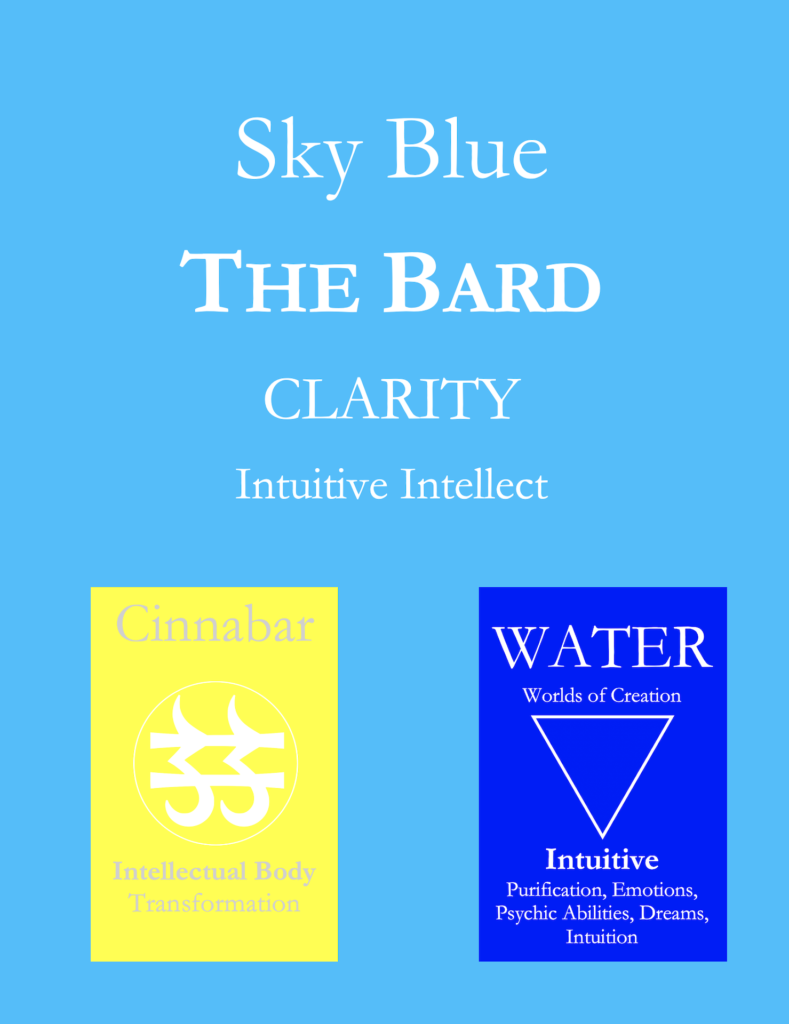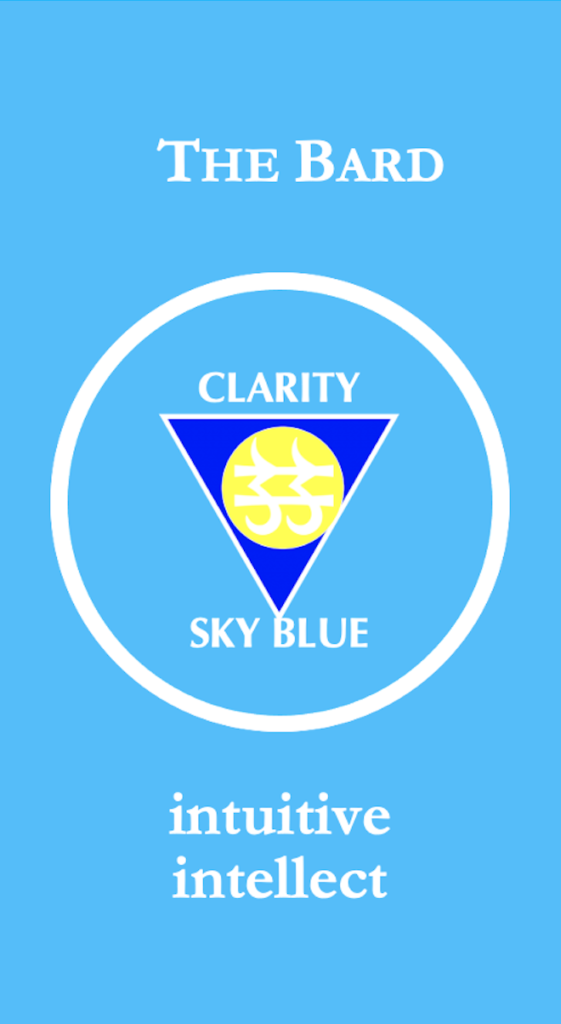Sky Blue
The Bard
Bards, historically revered figures in literature, mythology, and folklore, possess a unique set of attributes and qualities that distinguish them as storytellers, musicians, poets, and entertainers. Here are the key attributes of a bard:
- Artistic Talent: Bards are endowed with artistic talent and creativity, excelling in various forms of artistic expression such as music, poetry, storytelling, and performance arts. They possess innate gifts for melody, rhythm, and language, captivating audiences with their artistic prowess and expression.
- Oral Tradition: Bards are custodians of the oral tradition, preserving and transmitting cultural heritage, folklore, and historical narratives through storytelling and song. They weave tales of heroism, romance, adventure, and myth, passing down knowledge and wisdom from generation to generation.
- Versatility: Bards are versatile performers, skilled in a variety of artistic disciplines and genres. They possess proficiency in multiple musical instruments, vocal styles, poetic forms, and storytelling techniques, adapting their performances to suit diverse audiences and occasions.
- Charisma and Stage Presence: Bards possess charisma and stage presence, commanding attention and engaging audiences with their magnetic personality and expressive demeanor. They captivate listeners with their storytelling prowess, musical virtuosity, and theatrical flair, creating memorable and immersive experiences.
- Emotional Intelligence: Bards demonstrate emotional intelligence, empathizing with their audience and intuitively connecting with their thoughts, feelings, and experiences. They evoke a range of emotions—from joy and laughter to sorrow and introspection—through their artistry, forging deep and meaningful connections with their listeners.
- Cultural Ambassadorship: Bards serve as cultural ambassadors, representing the values, traditions, and collective identity of their communities through their artistic expression. They celebrate cultural diversity, foster intercultural exchange, and promote understanding and appreciation across social and geographical boundaries.
- Social Commentary: Bards use their platform to offer social commentary and critique, addressing contemporary issues, moral dilemmas, and societal challenges through their art. They provoke thought, inspire reflection, and stimulate dialogue on topics ranging from politics and justice to love and human nature.
- Memory and Mnemonics: Bards possess exceptional memory and mnemonic skills, enabling them to memorize vast repertoires of songs, poems, and stories without written documentation. They rely on mnemonic devices, repetition, and oral traditions to preserve and recall complex narratives and lyrical compositions.
- Celebration and Festivity: Bards contribute to the celebration and festivity of cultural and communal events, adding joy, color, and entertainment to festive occasions, rituals, and ceremonies. They infuse gatherings with music, dance, and storytelling, fostering a sense of community and camaraderie among participants.
- Legacy and Inspiration: Bards leave a lasting legacy of artistic expression and inspiration, inspiring future generations of artists, storytellers, and performers to carry on the tradition of bardic excellence. They spark imagination, ignite creativity, and instill a sense of wonder and enchantment in the hearts and minds of those touched by their art.
By embodying these attributes, bards transcend the role of mere entertainers, becoming cultural icons, spiritual guides, and guardians of the collective memory and imagination of humanity.





